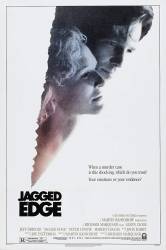Corrected entry: Jeff Bridges is found innocent of murder charges. Glenn Close, his lawyer, subsequently finds out that he was really guilty. Bridges realizes this and in the films' final sequence he goes to her house to kill her to keep her silent and ends up dead himself. Sadly, for Jeff, he needn't have worried. Double Jeopardy laws would have protected him from ever being tried twice for the same crime. And, under lawyer/client privledge Glen Close could not have told anyone, by law, that she knew he was the murderer even if she wanted to. So, Jeff Bridges gets himself killed while trying to kill Glen Close for knowing about a crime he couldn't be tried for, and that she could not tell anyone about.
Corrected entry: When Teddie tells Jack over the phone that she found the typewriter, we see him sitting casually at home in regular clothes. Within a couple of minutes, he is able to travel to her apartment and appear in his full "killer" regalia. Unless they were neighbors - which is certainly not implied - this would be impossible in any town, especially San Francisco.
Correction: Nothing indicates it was only a couple of minutes.






Correction: Glenn Close's character COULD have gone public with what she knew so long as she was willing to risk disbarment. As Jeff Bridges's character was the publisher of a prominent San Francisco daily newspaper, his exposure as a murderer would have ruined his career, which was one of the reasons for committing the original murderer. He probably didn't want to take any chances. In addition, he probably figured that the second murder could be blamed on the tennis pro he indirectly fingered for the first one.